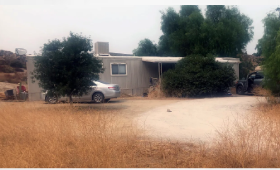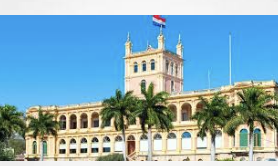A 32-year old former university lecturer is believed to have become first person in Britain to be prescribed medical cannabis after it was legalised for medicinal use in November.
Carly Barton, from Brighton, was given a prescription by a private doctor specialising in pain management to treat the condition fibromyalgia, which she developed following a stroke in her 20s and has left her in constant pain.
Ms Barton has been using cannabis illegally to self-medicate, but following the UK government’s decision to change the classification of marijuana on the back of a review into drug laws, she decided to pursue legal options.
Beyond the novelty of being the first individual in British history to be prescribed cannabis since it was banned in 2018 there is little for advocates to cheer; currently the government only authorises Dutch company Bedrocan to import the flower from the Netherlands, at enormous cost.
Bedrocan, which has been growing cannabis for more than twenty years, currently produces five different strains. It is the sole supplier of medicinal cannabis to the Office for Medicinal Cannabis (OMC), the government office with a monopoly on supply to Dutch pharmacies, and on its import and export.
The prescription is not provided by Britain’s healthcare system, and has set Ms Barton back £2,500 for a three-month supply. She will take a gramme of two flower-based cannabis products each day.
She said said doctors need clearer guidelines on when and how they can prescribe the drug, and she is also worried a “two-tier system” will emerge where people who cannot afford to pay for the treatment have to continue buying it illegally.
“I shouldn’t realistically have to pay this amount of money,” she said in a post on Facebook. “It’s going to last me three months and then I’m back in the same situation… I will be back to being a criminal unless I can convince the NHS specialist to rewrite the prescription. There is an unfair system where the rich will have access and the poor will still have their doors kicked in by police.
As the Home Office must rubber stamp the delivery, it could be a matter of weeks before it finds its way to the individual.
Ms Barton told UK media she hopes a health service doctor will give her a prescription, but campaigners say the interim guidelines are not giving much wiggle room
Most British doctors are still reluctant to prescribe cannabis, with reports local clinics have been forced to put up signs telling patients not to ask for it.
Home Secretary Sajid Javid has said the move is “in no way a first step to the legalisation of cannabis for recreational use”.
Doctors got permission to prescribe cannabis products on 1 November after a summer of campaigning by parents including Charlotte Caldwell, whose son Billy suffers severe epilepsy, and specialists such as Professor Mike Barnes.
Ms Caldwell travelled to Canada to get the cannabis oil she says controls his seizures, but was not allowed to bring it back into the UK and the cargo was seized at customs.
Under pressure, Javid commissioned a review of the Misuse of Drugs Regulations act of 2001 shortly after, which concluded there was evidence that medicinal cannabis has therapeutic benefits.
As a result, it was recommended that drugs meeting a clear definition of a cannabis-derived medicinal products should be placed in Schedule 2 of the Misuse of Drugs Regulations 2001.
Cannabis was previously considered Schedule 1, having no medicinal value and therefore could not be legally possessed or prescribed.
Moving it to Schedule 2 means it can be prescribed and supplied by doctors and pharmacists. They can also be legally possessed by anyone with a prescription.


















